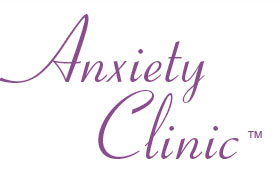Nervous Breakdown Symptoms
How To Spot Nervous Breakdown Symptoms...
Nervous breakdown symptoms tend to share much in common with the symptoms of anxiety, stress and often depression. On this page you'll learn the various types of nervous breakdown symptoms that affect sufferers. However, simply labelling yourself (or someone else for that matter) as having nervous breakdown symptoms, or indeed potentially suffering from a nervous breakdown - simply isn't enough.
Knowledge and understanding is of course the first step in recovery, but without action to correctly remedy the situation the knowledge is of little use. That's why we not only discuss nervous breakdown symptoms - we also discuss specifically how to overcome them and fully recover. Remember that when it comes to a nervous breakdown, the earlier you take remedial action - the easier your recovery will be.
Nervous Breakdown Symptoms - What Good Is A Label?

Many people tend to over-emphasise the importance of obtaining a 'diagnosis' when it comes to a nervous breakdown. It's almost like when a GP says you're having (or have had) a nervous breakdown, you realise you're not mad and a huge load is lifted from your shoulders. Often people leave the surgery with a prescription for tranquilisers or anti-depressants thinking "I'll take these pills and everything will be OK". Unfortunately it doesn't work that way in reality! We'll discuss further down the page specifically why drugs will NOT fix a nervous breakdown, nor will they prevent another breakdown from occurring in the future.
However, for now let's consider what a diagnosis really is. In reality it's just a label and although it can explain why you've been feeling a certain way, being given a label isn't the same thing as putting your problem right.
The purpose of a diagnosis (label) is to help YOU to understand what has gone wrong, but more importantly for you to decide how you are going to put it right. By all means use the information on our website to give you an educated idea of whether or not you or a loved one are suffering with an actual nervous breakdown. However, please remember that simply 'labelling' a condition is NOT the same thing as recovering from it.
If you want advice on the best recovery options you'll find it at the base of this page or alternatively you can look at our pages on Nervous Breakdown Recovery and Nervous Breakdown Treatment.
Physical Effects Of Symptoms...

In this section we'll discuss the most common physical nervous breakdown symptoms. It is important to understand that you do not have to suffer with all of the symptoms in order to have experienced a nervous breakdown. It is also important for us to point out that although we've covered the most common physical nervous breakdown symptoms - our list is not exhaustive. This means you may have additional (less common) physical symptoms with respect to your nervous breakdown which are not listed here.
- Exhaustion. Feeling constantly tired or lethargic (regardless of how much sleep you get) is very common.
- Muscle tension. Experiencing tension in the neck, shoulders, chest and jaw are all tell-tale symptoms.
- Uncontrollable bouts of shaking. Trembling can be mild or severe and can cause distress in sufferers as well as their loved ones.
- Stomach ache and cramps. The gut and bowel respond acutely to stress meaning that cramps tend to be common. Also constipation and diarrhoea can become a long term issue.
- Vision problems. Long term stress and anxiety can cause issues with blurred vision or light sensitivity.
- Headaches. Although commonly put down to stress, headaches can also be caused by dehydration which can occur as a knock on effect of diarrhoea or the sufferer not caring for themselves adequately in drinking enough hydrating fluid.
- Light-headedness or dizziness. Again this can be caused directly by stress or anxiety but dehydration or a lack of nutrition can also contribute. Be aware that sufferers of nervous breakdowns can fail to care for themselves adequately.
- Irregular heartbeat or 'feeling' the heart beating in the chest or ears is commonly reported. It can be the case where the heart is pounding due to stress or alternatively that the sufferer has become hypervigilant and places significance on issues that most people wouldn't even notice (such as their heart beating).
- Sweating. We tend to sweat normally as a means to regulate our temperature. However, in terms of a nervous breakdown, sweating can be considered to be caused at least in part by underlying stress and anxiety.
- Physical discomfort. Not being able to get physically comfortable, being very sensitive to temperature and not being able to sit still are symptoms of a nervous breakdown.
Psychological Effects Of Symptoms ...

In addition to the physical effects of a nervous breakdown, there are also common psychological effects. The following nervous breakdown symptoms are characteristic in many cases but as before we must stress that you don't need to suffer with all the psychological symptoms in order to be diagnosed with a nervous breakdown.
It is also true to say that we've only listed the most common psychological symptoms associated with a nervous breakdown. Thus you may have additional contributory symptoms that may not be shown here.
- Withdrawal from interests, friends and loved ones. These symptoms share much in common with various forms of depression.
- Struggling to cope with what would have previously been 'insignificant' issues.
- Problems with focus or concentration.
- Irritability or restlessness where it's tough to know what you want but still feel bad about how things currently are.
- Living in a depressed state where nothing seems worthwhile.
- Mental lethargy and a lack of focused motivation. (Although irritability and restlessness may exist there is little in terms of focused effort or drive to make positive progress).
- Unreasonable fear or blowing things out of proportion.
- Repetitive unsolicited thoughts.
- Ongoing rationalisation and problem solving in your mind in an attempt to 'think things right'.
- Thinking things that are outside of your normal character.
Emotional Effects Of Symptoms...

In this section we will discuss the emotional effects associated with the symptoms of a nervous breakdown. As before, you do not need to suffer with all the emotional symptoms listed in order to be diagnosed with a nervous breakdown.
You may also experience contributory symptoms which are not included in the list.
- Feelings of separation or alienation are common.
- In more extreme cases paranoia is possible.
- Excessive sensitivity to being judged by other people.
- Feelings of fear sometimes leading to panic or anxiety attacks.
- Unreasonable bouts of self-judgement or harshness.
- Loss of personal identity - like being in someone else's body.
- Spontaneous bouts of crying or feeling tearful.
- Spontaneous bouts of anger, resentment or frustration.
- Feelings of constant underlying guilt.
- Feelings of helplessness and/or hopelessness.
Suppressing Nervous Breakdown Symptoms With Drugs...

If you visit your GP and present them with the symptoms of a nervous breakdown it is highly likely that you'll leave the surgery with a prescription in your hand. Whilst medication can have a place in the treatment of a nervous breakdown - it is NEVER A CURE!
Medication is given because it is convenient for your GP - not because it is the best treatment for your nervous breakdown. It takes a couple of minutes to print and sign a prescription, thus in a typical eight minute GP consultation there is realistically little time to do anything else. However, as we say - it's not the best treatment and it is never a cure.
The best way to understand the role of medication in the treatment of a nervous breakdown is to consider it to be a 'symptom suppressant'. This means that medication will temporarily sweep some of the worst symptoms under the carpet giving you a little respite. This is not the same thing as fixing the problem which caused the nervous breakdown (and the symptoms) in the first place. The trouble some people have is that they take the pills and start to feel a little better. They incorrectly assume that as they are feeling better the drugs have somehow fixed the underlying problem. Unfortunately, due to a lack of transparency and effort on the part of many GP's, nervous breakdown sufferers are not informed of anything to the contrary. This false sense of security inevitably creates more serious consequences further down the road.
Whereas it is perfectly acceptable to take medication in acute nervous breakdown cases - it needs to be understood that the drugs are used ONLY to provide a window of respite whilst the sufferer undertakes relevant treatment for the underlying cause. For more detailed information on what treatment is required and how it works, read our page on Nervous Breakdown Treatment.
The Best Recovery Options...

The first option is to bury your head in the sand, do nothing and hope things will work out on their own. Unfortunately the odds of that happening are slim to nil. If you're approaching or have already experienced a nervous breakdown - you're already in too deep to simply hope for the best. It's entirely your decision, but from experience we can tell you that things are going to get worse for you if you simply sit there in denial.
The second option is to take medication and assume that taking a pill each day will fix everything. It is true to say that many people temporarily feel better when they take medication. However, the drugs are merely suppressing the symptoms - not addressing the problem or the underlying cause, which continues to run and fester in the background.
You could argue that you'll just keep taking the pills and thus you'll stay feeling OK. It would seem a reasonable argument... if only that were the way things worked. However, in reality the effects of these drugs are only temporary. The benefits are actually relatively short lived. The longer you take them, the less benefit you feel. Thus after a given amount of time you'll still be taking the medication but will be receiving no benefit. This means you'll not only be back feeling lousy but will also be facing potential addiction to the drugs and also the many (seriously unpleasant) side-effects that come with long term use. It just isn't a long-term solution... but if you feel the need to prove it to yourself - it's your choice.
The third and only really viable option is to get the right treatment which will address both the problem and the underlying cause. What you need is a specialised area of Cognitive Behavioural Therapy (CBT). Now, it's true to say that you can get CBT on the NHS but the waiting times are huge and the 'evidence based' methods they use are dated and generally not particularly effective. If you want to chance your luck by all means wait for months in a queue and see if the old style 'free NHS CBT' will work for you.
However, by comparison the CBT we use is specifically developed to work with nervous breakdown sufferers to get them back on their feet and feeling better as quickly as possible. We can generally start your specialised CBT with one of our experienced specialised Consultants within 2-3 days of your initial contact. If this is what you want - we can help you.
We have no need to do a hard sell because we use what works and our clients get specifically what they want in a fast, convenient, professional and cost effective way. This website is here to give you the honest, in depth information you need to make an educated decision as to what treatment is best for you or your loved one. It is your choice and if you choose to work with us we'll always give you one hundred percent.
Choose from the following options for more information on how we work, our affordable fees and our zero risk guarantee:
Face To Face Consultation (Stoke on Trent Clinic)







